IB Theory Of Knowledge: What It Is And How It Leads To Critical Thinking?
Diksha Sharma
The IB Diploma Programme stands out after the curriculum is the Theory of Knowledge (TOK). The subject, like Extended Essay, is compulsory for all students, and if executed well, it can go a long way in giving students a strong chance of gaining a lot of knowledge.
TOK encourages critical thinking among students and helps them make sense of what they encounter. The three key points of TOK are:
- Students engagement in the process of inquiry
- Deep understanding of knowledge by exchanging ideas with other students
- Reflection on the construction of meaning that is knowledge
Activities and discussions during the TOK class aim to help students discover and express their views on different issues. It encourages students to share ideas and gain confidence. In this process, their thinking and understanding as a human construction are enriched.
Theory of Knowledge compels students to ask specific basic questions about knowledge:
- what counts as knowledge
- who owns knowledge
- how does it grow
- what are its limits
- what is the value of knowledge and
- what are the implications of not having or having knowledge
The level of metacognitive generality on which the TOK works is what differentiates it from other subjects in IB. For instance, any other subject like maths or science develops a relevant subject awareness and skills in application to the subject matter.
TOK is only focused on how knowledge is gained, and student’s role in methods of gaining knowledge and the result.
TOK seeks to raise awareness about how the knowledge is alive with issues for exploration and built up- by people asking questions and finding solutions. The course also focuses on encouraging the students to understand the multiple perspectives that different groups have and form an opinion.
The main objective of TOK is to help students make connections between academic disciplines and between their feelings, thoughts, and actions.
Theory of Knowledge plays a vital role in shaping the thought-process and decision-making capabilities of students and helps them in applying that knowledge with greater awareness and credibility. The subject substantiates the IB curriculum claim to make its students knowledgeable.
One of the best I B schools which are implementing TOK in the right manner is Mount Litera School International (MLSI). They also offer IB program scholarships to deserving students.
The schools focus on the holistic development of students and to achieve the same; they engage students in various activities like robotics, pottery, digital arts, taekwondo, badminton, table tennis, and many more. The distinct method of teaching makes the school one of the best international schools in Mumba i.


Global Indian International School Blog

IB Theory of Knowledge: What it is and how it leads to critical thinking?
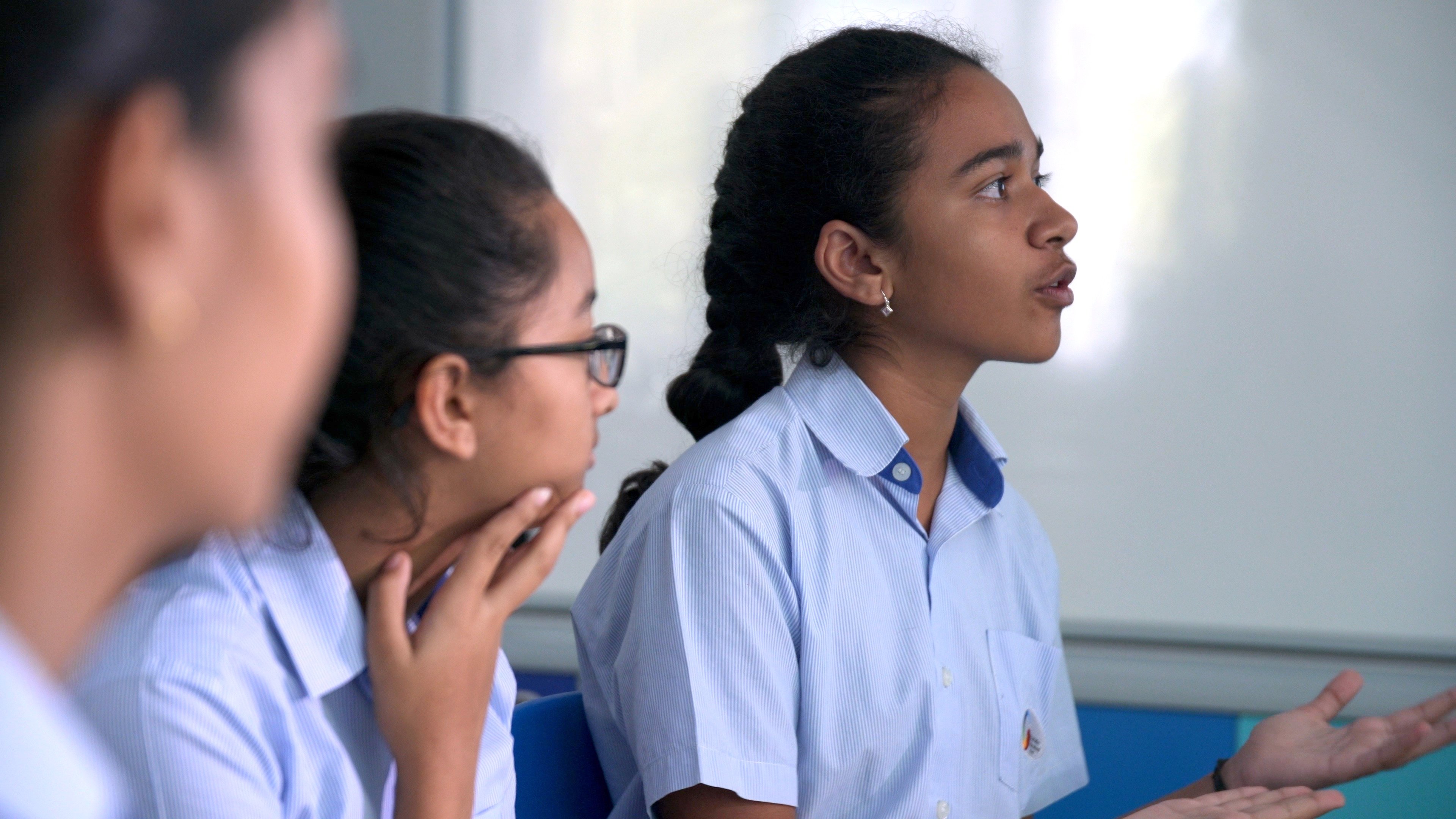
Of the two subjects that make IB Diploma Programme stand out as a sought after curriculum is Theory of Knowledge (TOK). The subject, like Extended Essay, is mandatory for all students, and if executed well by them, can go a long way in giving students a strong chance of achieving a high score.
What is Theory of Knowledge or TOK?
TOK, as part of the IB curriculum, deals with how we know what we claim to know. It encourages critical thinking about knowledge itself among students and helps them make sense of what they encounter.
The three key tenets of TOK are
- Student engagement in the process of inquiry
- Deep understanding of knowledge by exchanging ideas with other and
- Reflection on the construction of meaning that we call Knowledge
Activities and discussions during a TOK class aim to help students discover and express their views on issues related to knowledge. It encourages students to share ideas with others and learn from what others think. In this process, their own thinking and their understanding of knowledge as a human construction are shaped, enriched and deepened.
How does the study of TOK help students?
Throughout the years of their formal schooling students are exposed to quite a large amount of knowledge and content in a variety of subjects that they study. But they seldom consider the validity of the knowledge that they obtain or the means through which they acquire that knowledge.
Theory of Knowledge compels the students to ask certain basic questions about knowledge -
- what counts as knowledge
- how does it grow
- what are its limits
- who owns knowledge
- what is the value of knowledge and
- what are the implications of having or not having that knowledge
Read the success story of IBDP at GIIS
What distinguishes TOK from the other subjects in the IB diploma?
The level of metacognitive generality on which the TOK works is what distinguishes it from other subjects in IB.
For instance, any other subject like science or literature develops a relevant subject awareness and skills in application to the subject matter. TOK is only focussed on the ways in which the knowledge is gained, the skills and their role in the methods of gaining knowledge, and the nature of the resulting knowledge.
What goals does TOK attempt to achieve?
The course is rooted in the students’ experience of knowing. It seeks to raise awareness that knowledge is alive with issues for exploration and built up by people asking questions and responding to them. The course also aims to encourage the students to thoughtfully critique the multiple perspectives that different groups have and that are embedded in their perception.
The main objective of TOK is to help students make connections between academic disciplines and between their thoughts, feelings and actions.
What is the role of a teacher in teaching Theory of Knowledge?
As a teacher, I help students to structure their enquiry that helps develop their skills of investigation and forming their knowledge and steer them towards a larger understanding about acquiring knowledge and also help in non-academic areas of life.
There is no concrete syllabus that Theory of Knowledge follows. Throughout the two years, the role of the teacher is to stimulate, facilitate and guide the students. The teacher has to gradually guide the students to gain familiarity with the TOK way of questioning and thinking, and effectively explore on their own.
Theory of Knowledge plays an important role in shaping the thought-process and decision-making capabilities of students and helps them in applying the knowledge with greater awareness and credibility. The subject substantiates the IB curriculum’s claim to make its students deep Thinkers and Knowledgeable.
Subscribe to Email Updates
Recent posts, posts by topic.
- Global Indian International school (84)
- SMART Campus (68)
- SchoolOfTheFuture (57)
- Academic Excellence (34)
- Innovation and Creativity (25)
- Personality Development (25)
- Skill Development (22)
- student well-being (22)
- Virtual Classrooms (19)
- CBSE at GIIS (17)
- GIIS Dubai (16)
- Leadership (14)
- Primary Years Programme (14)
- GIIS Abu Dhabi (12)
- Relocating to Singapore (12)
- inquiry based learning (12)
- GIIS UAE (11)
- GIIS Virtual School (11)
- IB PYP at GIIS (11)
- Sports Excellence (11)
- Visual and Performing Arts (11)
- Structured learning (10)
- Universal Values and Ethics (10)
- GIIS a happy school (9)
- Global Montessori Programme GIIS (9)
- entrepreneurship (9)
- GIIS Preschool (8)
- Kindergarten at GIIS (8)
- IBDP at GIIS (7)
- happiness at GIIS (7)
- international curriculum (7)
- GIIS IGCSE Programme (6)
- Qutuhal (5)
- communication (5)
- global citizens (5)
- Bilingual Programme at GIIS (4)
- Community Care (4)
- GIIS Scholarship Programme (4)
- IB schools in Singapore (4)
- heartfulness (4)
- managing COVID in schools (4)
- COVID Prevention in schools (3)
- Chinese English Bilingual Programme (3)
- GIIS Primary Programme (3)
- Global International Primary Programme (3)
- Resilience scholarship (3)
- parents' role in reducing exam stress (3)
- technology (3)
- university placement (3)
- 21st century skills (2)
- Cambridge Grade 10 (2)
- Cyber security (2)
- Designing Punggol (2)
- English Week (2)
- GIIS Shekhar School of Music (2)
- ICT for Kids (2)
- International Education (2)
- Mental Healthline (2)
- New to Singapore (2)
- distraction in Children (2)
- inspiration (2)
- international school in Singapore (2)
- joyful learning (2)
- primary school (2)
- volunteer (2)
- Artificial Intelligence (1)
- Bridge Programme (1)
- English (1)
- Enquiry (1)
- GIIS Malaysia (1)
- Global Indian cultural Centre (1)
- Great things about Singapore (1)
- Indian schools in Singapore (1)
- Math Week (1)
- Online learning (1)
- Preschool in Japan (1)
- Schools in Edogawa (1)
- Science Week (1)
- Transformation (1)
- cambridge programme at GIIS (1)
- celebrations (1)
- couselling (1)
- curiosity (1)
- early years (1)
- educational apps (1)
- exam stress (1)
- exam tips (1)
- health benefits (1)
- managing children (1)
- play-based learning (1)
- scholarships (1)
- service (1)
- sleeping in children (1)
- webinar (1)


IB Theory of Knowledge (TOK): A Complete Guide
Charles Whitehouse
The IB Theory of Knowledge course is a unique and challenging component of the IB Diploma Programme , which also includes the Creativity, Activity, Service (CAS) program and the Extended Essay . Designed to develop students' critical thinking skills and broaden their understanding of different areas of knowledge, TOK is a mandatory requirement for students seeking the full IB Diploma. However, with its emphasis on independent research, analytical thinking, and evaluative skills, TOK can be a daunting prospect for students who are new to the course.
This guide aims to demystify the TOK course by providing a comprehensive overview of its core components, including the IB Theory of Knowledge Exhibition, knowledge questions, core and optional themes, the IB Theory of Knowledge essay, and the areas of knowledge. By following the practical tips and strategies outlined in this guide, students can excel in the TOK course and develop the skills needed to succeed in higher education and beyond.
Why IB Theory of Knowledge is Important
We interviewed one IB teacher who explained why the TOK is important:
"As an IB tutor , I believe that TOK is essential in helping students develop critical thinking skills and attitudes that they will use throughout their lives. This course teaches them how to make sense of information, analyze evidence, and question assumptions, while exploring different areas of knowledge and finding connections between them. By doing so, students can gain a more comprehensive understanding of the world and become better equipped to succeed in their future academic and professional pursuits."
Through TOK, students are challenged to think critically about key concepts such as knowledge, truth, and certainty, and to evaluate evidence from multiple perspectives. TOK encourages students to consider the different ways of knowing, such as language, sense perception, reason, and emotion, and examine how they shape our understanding of the world around us.

IB TOK grade distribution in 2021
Understanding the IB Theory of Knowledge Exhibition
The IB Theory of Knowledge Exhibition is a unique and mandatory component of the TOK course. It provides students with an opportunity to demonstrate their understanding of TOK's key concepts by creating a visual and interactive display for their peers, teachers, and external examiners. The Exhibition focuses on exploring the links between different areas of knowledge and how knowledge is acquired and evaluated.
To excel in the Exhibition, students need to understand the core components of TOK and effectively demonstrate their understanding through their display. Key elements of the Exhibition include selecting a real-world situation to analyse through the TOK lens, creating a clear and coherent knowledge question, and developing a detailed and comprehensive plan for the display. Students must also effectively communicate their ideas through the use of a range of mediums such as video, audio, and visual aids.
Approaching the Exhibition strategically is crucial for success. Students should focus on understanding the key concepts, conducting effective research, and creating a high-quality display. To do so, they can utilise the tips and guidance provided by an IB TOK tutor and resources such as online guides.
By demonstrating a deep understanding of TOK's core components and developing a high-quality Exhibition display, students can elevate their grade in the TOK course and develop valuable critical thinking and communication skills.
To learn more, read our article IB Theory Of Knowledge Exhibition: Guidance And Ideas .
Have a look at our comprehensive set of IB Study Notes and IB Practice Questions , developed by expert IB teachers and examiners!
Knowledge Questions in IB Theory of Knowledge
Understanding knowledge questions is essential for success in the IB Theory of Knowledge course. Knowledge questions explore the nature of knowledge itself and how it applies across different areas of study. They're used to evaluate real-life situations through a TOK lens and to demonstrate a deep understanding of TOK's core components.
To develop effective knowledge questions, you need to identify the key concepts and assumptions underlying the situation you're analysing. You can then use these concepts to create a clear and coherent knowledge question that explores the links between them. But effective use of knowledge questions also requires critical thinking skills and the ability to evaluate arguments and evidence from multiple perspectives.
When evaluating knowledge claims in real-life situations through the TOK lens, it's important to be aware of your own biases and those of others. Using knowledge questions effectively means being open to multiple perspectives and critically evaluating arguments and evidence.
By mastering the art of developing and using knowledge questions, you can succeed in TOK and develop valuable critical thinking and evaluative skills that will benefit you in other areas of study and in your personal life.
To learn more, read our article IB Theory Of Knowledge: Knowledge Questions Explained .
Navigating Core and Optional Themes in IB Theory of Knowledge
In the IB Theory of Knowledge course, there are core and optional themes that students must navigate to succeed. The core themes are language, sense perception, reason, and emotion, while the optional themes cover a range of specialised areas, such as ethics , aesthetics, and indigenous knowledge systems. Understanding and exploring these themes is essential for success in TOK.
To navigate the core themes effectively, students must understand the different ways in which knowledge is acquired and evaluated. Language, sense perception, reason, and emotion all play a role in how we make sense of the world, and exploring these themes can help us better understand how knowledge is acquired and evaluated in different areas of study.
Optional themes provide an opportunity for students to explore areas of personal interest in greater depth. For example, ethics is a popular optional theme that allows students to explore the ethical dimensions of different areas of knowledge. By choosing an optional theme that interests them, students can demonstrate their passion for learning and deepen their understanding of TOK's core concepts.
Navigating the core and optional themes in TOK requires critical thinking skills and the ability to evaluate arguments and evidence from multiple perspectives. By mastering these skills, students can develop a deep understanding of TOK's core components and elevate their grade in the course. So, take the time to explore the different themes and methods in TOK and see how they relate to your areas of interest and study.
To learn more, read our article IB Theory Of Knowledge: Core And Optional Themes Explained .
Writing an Excellent IB Theory of Knowledge Essay
Writing a well-crafted IB Theory of Knowledge essay is an essential part of demonstrating your understanding of TOK's key concepts and earning a good grade. However, crafting a TOK essay can be a daunting task, but with proper guidance and practice, you can ace the essay.
To write an exceptional TOK essay, you need to understand the essay's structure and requirements. TOK essays require students to explore a knowledge question, which is a question that explores the nature of knowledge itself and how it applies across different areas of study. The essay should demonstrate an understanding of TOK's core components, such as language, sense perception, reason, and emotion, and should critically evaluate real-life situations through a TOK lens.
When writing your TOK essay, thorough research and critical evaluation of arguments and evidence from multiple perspectives are crucial. Effective examples and case studies can help to illustrate your points and demonstrate your understanding of the key concepts. Additionally, it's important to communicate your arguments effectively and use appropriate language and terminology to convey your ideas.
With careful planning, practice, and guidance from your TOK teachers and other resources, you can write an excellent TOK essay and showcase your critical thinking and communication skills.
To learn more, read our article IB Theory Of Knowledge Essay: Guidance And Ideas .
Exploring the Areas of Knowledge in IB Theory of Knowledge
The IB TOK course requires students to explore five different areas of knowledge: Mathematics, Natural Sciences , Human Sciences, History, and the Arts. Understanding these areas of knowledge is essential to developing a holistic and well-rounded understanding of TOK's key concepts.
To effectively explore the areas of knowledge in TOK, students must critically evaluate the different ways of knowing within each area. For example, in the Natural Sciences, students may evaluate the ways of knowing such as empiricism, reason, and intuition, and examine how they shape our understanding of scientific knowledge. Similarly, in the Arts, students may explore the ways of knowing such as imagination and perception, and evaluate how they shape our understanding of artistic knowledge.
Moreover, students must also compare and contrast the different areas of knowledge to develop a broader understanding of knowledge itself. Through such comparative analysis, students can identify areas of overlap and areas of divergence between different areas of knowledge.
By exploring the areas of knowledge in TOK, students can develop a deeper understanding of educational philosophy, the nature of knowledge itself, and how it is acquired, evaluated, and shared. Furthermore, developing such an understanding is essential for succeeding in the TOK essay and the TOK exhibition.
To learn more, read our article IB Theory Of Knowledge: Areas Of Knowledge Explained .
Final Thoughts
The IBDP Theory of Knowledge course is an essential component of the International Baccalaureate Diploma Programme, providing students with a unique opportunity to develop critical thinking skills and a deeper understanding of the nature of knowledge itself. By understanding the core components of TOK, such as the Exhibition, knowledge questions, core and optional themes, essay writing, and areas of knowledge, students can excel in the course and develop valuable skills that will serve them well beyond their academic careers. With the right resources, guidance, and support, students can succeed in TOK and become lifelong learners equipped with the skills and attitudes necessary to engage in intellectual inquiry and make meaningful contributions to society.
Need help from an expert?
4.92 /5 based on 480 reviews
The world’s top online tutoring provider trusted by students, parents, and schools globally.
Study and Practice for Free
Trusted by 100,000+ Students Worldwide
Achieve Top Grades in your Exams with our Free Resources.
Practice Questions, Study Notes, and Past Exam Papers for all Subjects!
Need Expert TOK Help?
If you’re looking for assistance with the IB, get in touch with the TutorChase team and we’ll be able to provide you with an expert IB TOK tutor . We’ll be there every step of the way

Professional tutor and Cambridge University researcher

Written by: Charles Whitehouse
Charles scored 45/45 on the International Baccalaureate and has six years' experience tutoring IB and IGCSE students and advising them with their university applications. He studied a double integrated Masters at Magdalen College Oxford and has worked as a research scientist and strategy consultant.
Related Posts

IB Theory of Knowledge: Knowledge Questions Explained

IB Theory of Knowledge: Areas of Knowledge Explained

IB Theory of Knowledge Essay: Guidance and Ideas

Hire a tutor
Please fill out the form and we'll find a tutor for you
- Select your country
- Afghanistan
- Åland Islands
- American Samoa
- Antigua and Barbuda
- Bosnia and Herzegovina
- Bouvet Island
- British Indian Ocean Territory
- Brunei Darussalam
- Burkina Faso
- Cayman Islands
- Central African Republic
- Christmas Island
- Cocos (Keeling) Islands
- Congo, The Democratic Republic of the
- Cook Islands
- Cote D'Ivoire
- Czech Republic
- Dominican Republic
- El Salvador
- Equatorial Guinea
- Falkland Islands (Malvinas)
- Faroe Islands
- French Guiana
- French Polynesia
- French Southern Territories
- Guinea-Bissau
- Heard Island and Mcdonald Islands
- Holy See (Vatican City State)
- Iran, Islamic Republic Of
- Isle of Man
- Korea, Democratic People'S Republic of
- Korea, Republic of
- Lao People'S Democratic Republic
- Libyan Arab Jamahiriya
- Liechtenstein
- Macedonia, The Former Yugoslav Republic of
- Marshall Islands
- Micronesia, Federated States of
- Moldova, Republic of
- Netherlands
- Netherlands Antilles
- New Caledonia
- New Zealand
- Norfolk Island
- Northern Mariana Islands
- Palestinian Territory, Occupied
- Papua New Guinea
- Philippines
- Puerto Rico
- Russian Federation
- Saint Helena
- Saint Kitts and Nevis
- Saint Lucia
- Saint Pierre and Miquelon
- Saint Vincent and the Grenadines
- Sao Tome and Principe
- Saudi Arabia
- Serbia and Montenegro
- Sierra Leone
- Solomon Islands
- South Africa
- South Georgia and the South Sandwich Islands
- Svalbard and Jan Mayen
- Switzerland
- Syrian Arab Republic
- Taiwan, Province of China
- Tanzania, United Republic of
- Timor-Leste
- Trinidad and Tobago
- Turkmenistan
- Turks and Caicos Islands
- United Arab Emirates
- United Kingdom
- United States
- United States Minor Outlying Islands
- Virgin Islands, British
- Virgin Islands, U.S.
- Wallis and Futuna
- Western Sahara

Still have questions? Let’s get in touch.

The Role of Theory of Knowledge (TOK) in IB

The International Baccalaureate (IB) program is known for its rigorous and comprehensive approach to education, emphasizing the development of critical thinking, inquiry, and international-mindedness. One of the core components of the IB program is Theory of Knowledge (TOK). In this article, we'll explore the role of TOK in the IB curriculum and why it is considered a vital element in fostering well-rounded, reflective, and intellectually engaged students.
What Is Theory of Knowledge (TOK)?
TOK is a unique course within the IB program that challenges students to think deeply about knowledge itself. It encourages students to explore the nature of knowledge, its acquisition, its validation, and its application in various areas of human endeavor. TOK is interdisciplinary in nature, drawing from philosophy, psychology, sociology, and other fields to help students develop a holistic understanding of knowledge.
The Role of TOK in the IB Curriculum
TOK plays several crucial roles in the IB curriculum:
1. Developing Critical Thinking:
TOK pushes students to think critically and analytically. It encourages them to question assumptions, consider different perspectives, and evaluate the validity of knowledge claims. Through discussions and debates, students refine their ability to think logically and critically.
2. Encouraging Reflection:
TOK promotes self-awareness and reflection. It challenges students to examine their own beliefs, biases, and ways of knowing. It asks them to consider how personal and cultural factors influence the way they perceive and interpret the world.
3. Fostering Interdisciplinary Connections:
TOK bridges the gap between different subjects and disciplines. It helps students see the interconnectedness of knowledge across various areas of study. This interdisciplinary approach enhances students' ability to apply knowledge in real-world contexts.
4. Exploring Knowledge Questions:
TOK centers around knowledge questions, which are open-ended inquiries about the nature of knowledge. Students learn to formulate and investigate these questions, fostering a deeper understanding of the complexities of knowledge.
5. Developing Communication Skills:
TOK encourages students to express their ideas clearly and coherently. Whether through presentations, essays, or class discussions, students refine their communication skills and learn to articulate complex ideas effectively.
6. Cultivating Global Awareness:
TOK emphasizes the importance of international-mindedness. It encourages students to consider diverse cultural perspectives and to recognize that knowledge is shaped by cultural, historical, and geographical factors.
7. Assessing the Nature of Knowledge Claims:
TOK provides a framework for evaluating knowledge claims. It introduces students to concepts such as justification, evidence, and reliability. Students learn to assess the credibility of sources and the validity of arguments.
8. Enhancing Ethical Considerations:
TOK prompts ethical reflection. Students explore the ethical implications of knowledge and its applications in fields such as science, technology, and the humanities. They consider questions related to responsibility, ethics, and the consequences of knowledge.
9. Preparing for Higher Education:
TOK prepares students for the intellectual challenges of higher education. The critical thinking, research, and communication skills developed in TOK are valuable assets for university studies and beyond.
10. Assessing Creativity:
TOK acknowledges the role of creativity in knowledge production. It encourages students to consider how imagination and creativity contribute to innovation and the advancement of human understanding.
Assessment in TOK
In TOK, assessment is typically based on two main components:
1. Presentation:
Students are required to give an individual or group presentation on a knowledge question of their choice. They must explore the question, provide arguments, and engage the audience in critical thinking. Presentation skills, as well as the ability to effectively communicate complex ideas, are evaluated.
Students write a 1,600-word essay in response to a set of prescribed titles or questions provided by the IB. The essay requires students to demonstrate their ability to analyze and evaluate knowledge claims, draw connections between different areas of knowledge, and formulate well-structured arguments.
Theory of Knowledge (TOK) is a cornerstone of the International Baccalaureate (IB) program, serving as a catalyst for intellectual growth and development. It encourages students to question, reflect, and engage critically with the world of knowledge. TOK equips students with essential skills such as critical thinking, interdisciplinary understanding, and effective communication, all of which are invaluable for success in higher education and in life. Moreover, TOK fosters an appreciation for the complexities and nuances of knowledge, contributing to the IB program's mission of creating well-rounded, thoughtful, and globally aware individuals.
You Might Also Like

The Secret Behind Early Applications
If you are serious about taking admission to your dream university/college, early decision admission program is best option for you, have a look! - AP Guru

The Perfect College Essay Structure
The Fundamentals of writing an Essay which includes the process of brainstorming, drafting, and finalizing.

A Brief Introduction to College Scholarships
Do you know how to win college scholarship? Know detail information about college scholarship & how to get scholarship successfully? - Read our blog carefully

Free Resources
IB School Leadership
Website by Chris Wright
Updated 15 May 2024
InThinking Subject Sites
Subscription websites for IB teachers & their classes
Find out more
- thinkib.net
- IBDP Biology
- IBDP Business Management
- IBDP Chemistry
- IBDP Economics
- IBDP English A Literature
- IBDP English A: Language & Literature
- IBDP English B
- IBDP Environmental Systems & Societies
- IBDP French B
- IBDP Geography
- IBDP German A: Language & Literature
- IBDP History
- IBDP Maths: Analysis & Approaches
- IBDP Maths: Applications & Interpretation
- IBDP Physics
- IBDP Psychology
- IBDP Spanish A
- IBDP Spanish Ab Initio
- IBDP Spanish B
- IBDP Visual Arts
- IBMYP English Language & Literature
- IBMYP Resources
- IBMYP Spanish Language Acquisition
- IB Career-related Programme
Disclaimer : InThinking subject sites are neither endorsed by nor connected with the International Baccalaureate Organisation.
InThinking Subject Sites for IB Teachers and their Classes
Supporting ib educators.
- Comprehensive help & advice on teaching the IB diploma.
- Written by experts with vast subject knowledge.
- Innovative ideas on ATL & pedagogy.
- Detailed guidance on all aspects of assessment.
Developing great materials
- More than 14 million words across 24 sites.
- Masses of ready-to-go resources for the classroom.
- Dynamic links to current affairs & real world issues.
- Updates every week 52 weeks a year.
Integrating student access
- Give your students direct access to relevant site pages.
- Single student login for all of your school’s subscriptions.
- Create reading, writing, discussion, and quiz tasks.
- Monitor student progress & collate in online gradebook.
Meeting schools' needs
- Global reach with more than 200,000 users worldwide.
- Use our materials to create compelling unit plans.
- Save time & effort which you can reinvest elsewhere.
- Consistently good feedback from subscribers.
For information about pricing, click here
Download brochure
See what users are saying about our Subject Sites:
Find out more about our Student Access feature:
What is Theory of Knowledge?
- IB Programmes: PYP | MYP | DP | CP
- The Diploma Programme
- Theory of Knowledge
Theory of knowledge (TOK) is unique to the IB. It is central to the Diploma programme and learner centered classrooms. It is part of the Core. Theory of Knowledge is a course that is fundamentally about critical thinking and inquiry into the process of knowing rather than learning a specific body of knowledge. Diploma students are asked to apply the critical thinking skills they acquire in their TOK lessons to all of their subject disciplines. Subject teachers are expected to show how they are integrating TOK thinking in their unit planners.
This section is written in the form of a number of TOK workshops that you can facilitate with your staff to introduce your colleagues to Theory of Knowledge. It asks your staff to engage in the same type of activities that we ask diploma students to do.
Professional Inquiry
Our professional inquiry will explore:
- How does Theory of Knowledge develop critical thinking skills?
- What do we mean when we talk about a TOK habit of mind?
- How can all teachers model and reinforce effective TOK thinking skills into their subjects?
Before facilitating the session it is helpful to recognize that some people ‘get TOK’ quickly, whilst others get it in time with some effort, but a few may always struggle with getting it. TOK teachers talk about the ‘click’ when you suddenly understand what it is all about and from then on it is second nature to think in a TOK way and ask how we know what we think we know. They develop a TOK ‘habit of mind’.
Theory of knowledge guide : First assessment 2015 (IB, 2013). An electronic version can be found here .
Theory of knowledge guide 2020. First assessment 2022.
Theory of knowledge brief 2015 .
IB Diploma Programme Subject Guides
Theory of knowledge: Understanding knowledge issues , (2009). This document is still valid for the new 2013 guide. However, in the new guide 'knowledge issues' has been changed to 'knowledge questions'.
Perspectives on a curious subject: What is IB theory of knowledge all about? Eileen Dombrowski, John Mackenzie, Mike Clarke, IB research paper.
TOK 2022 is a free Theory of Knowledge website based on the revised specification - first teaching 2020, first examination in 2022. An excellent introduction to the revised specification with many hyperlinks to material students and teachers can use. Highly recommended.
Andrew Brown's Theory of Knowledge website provides many helpful activities and explanations. It is easy to access and use. Click HERE .
Theory of Knowledge.net website has a wealth of free resources covering all aspects of TOK. They also have a subscription website. Highly recommended.
http://sohowdoweknow.weebly.com/ - TOK website for IB students.
Breaking down the TOK is a blog by an ex TOK student esplaining what TOK is., A useful blog to share with students.
- [email protected]
- Get 21% OFF . Use the code: FIRST21

IB Theory of Knowledge: What It Is, Course Description, and Claims
Table of contents.
Theory of Knowledge is an important part of the International Baccalaureate curriculum, which provides students with the opportunity to explore and question different aspects of knowledge. Through this program, students gain an understanding of how knowledge can be acquired, verified, justified, and applied.
TOK is designed to help students become better thinkers, allowing them to make well-informed decisions based on the evidence they have available. It encourages them to think critically and challenge existing beliefs and interpretations, as well as to reflect on the sources of their knowledge.
The TOK program has four primary purposes: to encourage students to think critically and question the validity of knowledge; to develop skills of reasoning, inquiry, and analysis; to promote creative and collaborative learning; and to foster an appreciation for the complexity of human experience.
The course is comprised of two units: one exploring theoretical questions about the knowing process, and the other analyzing the ways in which knowledge claims are used in real-world applications. Students are expected to engage in discussions, do research, and analyze texts in order to gain insights into the topics at hand.
At the end of the TOK program, students will be required to complete an exam that tests their understanding of the course content. This exam will assess their ability to think critically and apply their knowledge to real-world situations.

What is Theory of Knowledge?
Theory of Knowledge (TOK) is an important course taken by students in the International Baccalaureate (IB) program. TOK helps students to develop critical thinking skills and encourages them to think deeply about the knowledge they acquire in subjects such as science , math, history and language. The aim of TOK is to examine the different ways of knowing, such as sense perception, emotion, logic, and memory, and to gain a better understanding of how knowledge is acquired and justified.
The TOK course encourages students to challenge their own beliefs and assumptions, by examining how personal and cultural values shape their opinions and perspectives. Through the use of case studies, students learn to weigh evidence critically, to develop their own arguments, and to assess the reliability and validity of sources. In this way, students become aware of the potential biases in different knowledge claims, and are equipped with the skills to analyze information and form their own conclusions.
TOK also teaches students to communicate their ideas clearly and effectively. Through activities such as debates and oral presentations, students learn to articulate their points of view in an articulate manner. Additionally, they practice giving feedback to their peers, which further helps them to develop their communication skills.
In summary, Theory of Knowledge is a course designed to help students develop a better understanding of how knowledge is acquired, justified, and applied in our world. Through the use of analytical tools, case studies, and communication exercises, students gain a deeper appreciation of the complexities of knowledge and how it is applied in various contexts.
What It Entails: Examining the Different Topics Covered in an IB TOK Course
The International Baccalaureate Theory of Knowledge course is a multifaceted, complex topic. There are many different areas within the discipline that are explored and discussed. In this section, we will be discussing the various topics that you can expect to encounter in an IB TOK course.
One of the most important topics that is discussed in an IB TOK course is that of knowledge itself. Students will explore and discuss the different ways that knowledge is acquired and studied. They will also be tasked with understanding the different claims and theories related to knowledge.
Another major topic that students will encounter in an IB TOK course is the concept of bias. This is an important concept because it can help students to better understand how individual perspectives can influence their ability to gain knowledge. They will explore how biases can both help and hinder learning, as well as how to recognize them.
In addition to covering topics related to knowledge and bias, IB TOK courses also focus on critical thinking. Through the use of tools such as the Socratic method, students will learn how to formulate arguments, evaluate information, and think divergently and creatively.
Finally, students will also investigate the ethical implications of their actions. They will explore and discuss the responsibility that comes with using knowledge, as well as the ethical considerations that should be taken when gathering or using information.
Overall, the IB TOK course provides students with a comprehensive understanding of the theory of knowledge and the different topics related to it. Through engaging discussions and activities, students will become more aware of the different aspects of knowledge, as well as the ethical considerations that come with its acquisition and use.
Analysis of Knowledge Claims
Theory of Knowledge (TOK) is the area of study in the International Baccalaureate (IB) program that seeks to explore and analyze knowledge claims. TOK examines how knowledge is acquired, justified and applied. This means looking at how we know something is true and also how we can make sense and use of this knowledge in our day-to-day lives.
When it comes to knowledge claims, there are three main questions that need to be answered. Firstly, what is the extent of the knowledge? That is, to what extent can the knowledge be trusted? Does it have a limited scope or is it universal in its application? Secondly, what is the justification for the knowledge claim? How have we come to this conclusion/decision? Finally, what is the application of the knowledge? How can the knowledge be used in real-world situations?
The analysis of knowledge claims is a key part of the TOK curriculum. It involves understanding the different ways in which knowledge can be acquired, justified, and applied. This is done by using a variety of analytical tools such as critical thinking and logical reasoning. Students are expected to use these tools to understand why a knowledge claim can be trusted and how it can be applied.
In order to effectively analyze knowledge claims, students need to understand the various forms of evidence that can be used to support them such as observations, scientific experiments and literature reviews. They also need to understand how to evaluate and assess claims from different perspectives. By using analytical techniques, students can determine if a knowledge claim is true, false, or somewhere in between.
Through analyzing knowledge claims, students can gain a better understanding of the scope of their knowledge and the implications of applying their knowledge in real-world situations. This helps them to become more thoughtful and critical thinkers and to think more deeply about the claims they are making.
Tools for Thinking: An Exploration of the Tools of TOK and their Uses
Theory of Knowledge is a course designed to help students think more critically and analytically about the world around them. A key part of this process is understanding and using tools for thinking, which allow us to better understand knowledge and its claims. There are four main tools for thinking, each with its own set of uses.
Recognizing Assumptions
One of the first steps to critical thinking is recognizing assumptions. This involves understanding the beliefs and values that shape how someone approaches a topic. By recognizing these assumptions, it is possible to look at a claim or argument from a different perspective, allowing for a more holistic view of the issue.
Evaluating Evidence
Once assumptions are recognized and understood, then it is time to evaluate the evidence. Evaluating evidence involves analyzing data, facts, and information related to a particular issue. This includes being able to distinguish between reliable sources and those that aren’t, as well as looking for patterns and relationships in the data.
Considering Implications
Thinking about implications requires looking at the possible outcomes of a particular decision or action. This can include considering how something could affect people, groups, or entire societies in the future. This type of tool helps students to think beyond the immediate consequences and explore more far-reaching possibilities.
Reflecting on Perspectives
Finally, reflecting on perspectives is an important tool for understanding knowledge and its claims. This involves looking at a particular situation from multiple angles and being open to new ideas and viewpoints. This allows for a more diverse view of the subject and helps to expand our understanding of it.
These four tools are essential for effective critical thinking and analysis. By understanding them and applying them to real-world situations, students can gain a better understanding of knowledge and its claims.

Supporting Students and Encouraging Critical Thinking
When teaching Theory of Knowledge, it is important to encourage students to think more deeply, push their boundaries and become more analytical. To do this, teachers should create a nurturing and judgment-free classroom environment to ensure all students feel safe to share their ideas, ask questions and be curious.
One way to ensure students feel comfortable and confident in the classroom is through peer discussion, where each student can learn from one another. Teachers can facilitate these discussions by setting up debates, encouraging students to challenge each other’s claims, and providing critical feedback.
On an individual level, teachers should also strive to understand a student’s strengths and weaknesses and provide support accordingly. For students who are struggling, teachers should try to provide clear guidance on how to proceed with the syllabus, or offer extra tutorials and mentorship sessions for those who need additional help.
To prepare students for their exam, teachers should teach students how to think critically and logically. They should explain the different types of knowledge in TOK and demonstrate how to evaluate evidence, reason through arguments and construct their own knowledge claims. Understanding how knowledge works within the real world can also help students when they come to write their essays .
Finally, teachers must make sure students understand the expectations of the IB assessment. Encourage them to plan ahead with their studies and assist them in meeting deadlines. Most importantly, be available to answer any of their questions and help them feel prepared and confident with their exam.
Case Studies: Applying TOK to Daily Life
Case studies are an important part of understanding the Theory of Knowledge. By using real-world examples and exploring how different theories and ideas can be applied to daily life, we can gain a greater understanding of the world around us.
The case studies that are part of a Theory of Knowledge course cover topics such as ethics, knowledge claims, language, and cultural values. These studies may also explore how different societies and cultures interpret the same idea or statement.
Students should also consider how their own beliefs, and the beliefs of those around them, may influence their interpretation of a study. Recognizing that people can have different opinions is an important part of Theory of Knowledge.
For example, in a study looking at the impact of music on the brain, students should consider how their own cultural background might shape the way they interpret the results. In this case, it would be important for students to recognize that some cultures may celebrate different forms of music than others.
Case studies can also bring up questions about the validity and reliability of knowledge. By exploring a variety of sources, students can test their assumptions about whether or not a particular idea is true. This helps them to better understand how knowledge is acquired and justified.
Ultimately, case studies give students an opportunity to apply the concepts they learn in Theory of Knowledge to their everyday lives. This encourages them to think critically and to engage with their peers in meaningful conversations.
Conclusion: Summarizing the Main Takeaways of TOK
The International Baccalaureate Theory of Knowledge program is an incredibly important and interesting subject for any student. It encourages students to think critically and question the validity of their knowledge. This helps them to create new perspectives, understand different cultures more deeply, and develop a better understanding of their own beliefs and those of others.
At the end of this guide, we can come to the conclusion that TOK is a vital subject for all IB students. It has the potential to greatly enhance their understanding of the world around them, and develop their critical thinking skills. Through exploring different knowledge claims, tools for thinking, and case studies, students will be able to gain a much deeper insight into the world.
TOK is a tool of endless possibilities. It teaches students to think in new and creative ways and provides them with the skills they need to tackle any problem. The importance of TOK cannot be overstated. In this guide, we have covered the concept of TOK and its purpose, the topics covered in an IB TOK course, and explored how knowledge can be acquired, justified, and applied.
If you are looking to become an IB student, then having an understanding of TOK is essential. We hope that this guide has given you a good starting point for your TOK journey and that you can now confidently approach the course.
- Last Edit 15 AUG 2023

Nick Radlinsky
Nick Radlinsky is a devoted educator, marketing specialist, and management expert with more than 15 years of experience in the education sector. After obtaining his business degree in 2016, Nick embarked on a quest to achieve his PhD, driven by his commitment to enhancing education for students worldwide. His vast experience, starting in 2008, has established him as a reputable authority in the field.
Nick's article, featured in Routledge's " Entrepreneurship in Central and Eastern Europe: Development through Internationalization ," highlights his sharp insights and unwavering dedication to advancing the educational landscape. Inspired by his personal motto, "Make education better," Nick's mission is to streamline students' lives and foster efficient learning. His inventive ideas and leadership have contributed to the transformation of numerous educational experiences, distinguishing him as a true innovator in his field.
You Might Be Interested
- Psychology Internal Assessment Topics
- Business IA topics. Guide with examples
- How to Choose Math IA Topic
- IB Biology IA Topics That Don’t Require Experiment
- Biology IA topics
- A Guide to Choosing and Creating Compelling Math IA SL Topics
- How to write physics IA. Comprehensive Guide
- How to write Biology Internal Assessment. Comprehensive Guide
- Economics IA topic ideas
- Math SL Internal Assessment Ideas
- Geography IA ideas
- IB Internal Assessment Rubric: Grading Criteria and How to Excel
- How to write an IB Internal Assessment
Looking for more help with your Internal Assessment? Check out our IB IA Writing Service or buy Internal Assessment .

2024 November TOK Essay Prompts | How to Write Them?
In this comprehensive guide, an experienced IB writer shares essential insights and strategies specifically tailored to mastering TOK essay prompts. From analyzing the nuances of knowledge acquisition in different areas of knowledge to considering the dynamic interplay between artistic creativity and scientific methodology, this article offers a deep immersion into each prompt.

How Long Is IB EE? Minimum and Maximum Word Count
Balancing word count limits requires careful planning and consideration of every word you write. In this guide, I’ll share strategies and insights from years of mentoring IB students to help you master the art of word count management in your extended essay.

TOK Essay Word Count. Min & Max
In this guide, we discuss the crucial parameters set by the International Baccalaureate for minimum and maximum word counts. Through the insights of an experienced IB writer, this article offers practical strategies for staying within these limits while improving the quality and depth of your essay.

How Long Is IB IA? Average IA Word Count
From my experience as IB tutor, a frequent question among students is, “How Long Is IB IA?” This question is crucial as the IA represents a significant component of the IB diploma, reflecting a student’s ability to apply classroom knowledge in a real-world context.

IB Extended Essay Rubric. Grading Criteria
Understanding the IB extended essay rubric is essential for success. The rubric provides a framework that grades students on several key criteria including the sharpness of their research question, the rigor of their methodology, the breadth and depth of their knowledge, the fluidity and clarity of their argumentation, and their personal engagement with the research topic.

IB TOK Essay Rubric. Grading Criteria
This article provides essential insights and strategies for understanding the assessment process and helping you write essays that meet and exceed the rigorous standards of the IB curriculum. Whether you’re striving for clarity of argument, effective integration of knowledge, or personal engagement, our tips will help you achieve a higher score.
© 2024 I Bstudenthelp.com. This website is owned and operated by Udeepi OU Harju maakond, Tallinn, Lasnamäe linnaosa, Sepapaja tn 6, 15551. Disclaimer : Services we provide are only to assist the buyer like a guideline to complete any kind of writing assignment. Privacy Policy Terms and Conditions Cookie Policy Revision Policy Refund Policy
- Workshop Wikis
- InThinking Subject Sites
Theory of Knowledge across the curriculum
“In all teaching, the teacher learns the most.” [ Martin Heidegger, 1889-1976 ]
The aim of the IB Theory of Knowledge course - which is centred on the question “How do you know?”- is to help students to develop their critically thinking skills.TOK works most effectively when colleagues understand how it relates to their day to day teaching. Using a range of focussed examples and hands-on exercises, this one day INSET seeks to demonstrate the relevance of TOK to all IBDP teachers and to help schools to develop an integrated strategy to implement the programme. The workshop consists of four sessions:
Topics covered
1. why critical thinking matters.
When we consider the difference between education and indoctrination, it quickly becomes apparent that teaching is by its very nature teaching to think. The cultivation of critical thinking skills is particularly important in the information age as an antidote to the mindless use of the Internet. It also serves the broader goals of international education by encouraging students to reflect on their cultural assumptions and develop an openness to other ways of looking at the world.
2. Double-Edged Knowledge Tools
According to the TOK diagram, there are four main “tools” for acquiring knowledge: sense perception, language, reason and emotion. However, each of these tools is double-edged and has both pros and cons. We will look in detail at two of these tools and consider the role they play across the range of subject areas.
3. Subject Specific Examples
A key requirement for a successful TOK course is to use examples that students can easily access and relate to their own educational experience. To capture the spirit of TOK, we will look at some examples of typical TOK activities in the various “Areas of Knowledge” - Mathematics, Natural Sciences, Human Sciences, History, the Arts, and Ethics.
4. Implementing the Programme
Once teachers are aware of, and sympathetic to, the aims and objectives of TOK, it is easier for them to support and contribute to the course. In this final session, we focus on some specific strategies for integrating TOK across the curriculum. We conclude by relating TOK back to the broader goals of education.
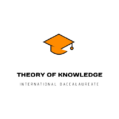
[email protected]
+919878797000.
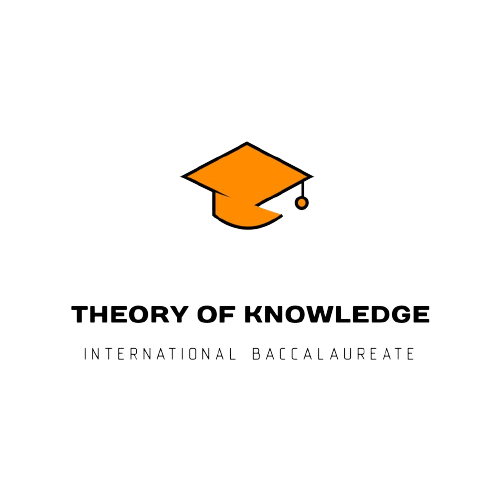
THEORY OF KNOWLEDGE 2023
A comprehensive guide.

THEORY OF KNOWLEDGE
Tok curriculum.
Discover the TOK curriculum and its components, including knowledge questions, areas of knowledge, and ways of knowing.
TOK Essay Tips
Learn essential tips and techniques for writing an impressive TOK essay that effectively addresses knowledge issues and receives high marks.
TOK Presentation
Get guidance on how to deliver an engaging TOK presentation that effectively communicates.
TOK Resources
Resources to explore TOK concepts and expand your knowledge: books, articles, and websites.
Lorem Porem
Lorem porem ipsum, 25 years of experience.
Successfully Project Finished.
Years of experience with proud
Colleagues & counting more daily
TOK ESSAY TITLES 2024
Tok essay title 1 may 2024.
Is subjectivity overly celebrated in the arts but unfairly condemned in history? Discuss with reference to the arts and history.
TOK ESSAY TITLE 2 MAY 2024
How can we reconcile the opposing demands for specialization and generalization in the production of knowledge? Discuss with reference to mathematics and one other area of knowledge.
TOK ESSAY TITLE 3 MAY 2024
Nothing is more exciting than fresh ideas, so why are areas of knowledge often so slow to adopt them? Discuss with reference to the human sciences and one other area of knowledge.
TOK ESSAY TITLE 4 MAY 2024
Do we underestimate the challenges of taking knowledge out of its original context and transferring it to a different context? Discuss with reference to two areas of knowledge.
TOK ESSAY TITLE 5 MAY 2024
Do we need custodians of knowledge? Discuss with reference to two areas of knowledge.
TOK ESSAY TITLE 6 MAY 2024
Are we too quick to assume that the most recent evidence is inevitably the strongest? Discuss with reference to the natural sciences and one other area of knowledge.
Choose from three different TOK course structures
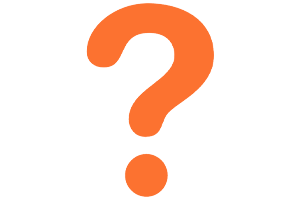
Big Question Framework

Classic TOK Lessons

Disruptive Ideas
Take advantage of three classroom-ready courses for TOK, exclusively available to faculty members. Each course provides meticulously designed and structured lessons, supported by clear and measurable learning objectives. Packed with media-rich resources and inspired by current real-world situations and ideas, these courses will save you considerable time. Begin downloading and delivering them now.
Apply TOK ideas and concepts to the real world
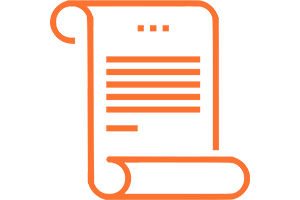
Monthly Newsletter

Investigating Issues

12 Key TOK Concepts
Our resources aim to assist students in exploring and comprehending the most significant current events while understanding how TOK concepts manifest in the real world. Our exclusive monthly TOK newsletter, Investigating Issues, along with the 12 Key Concepts, will aid you and your entire DP faculty in developing critical thinking skills and connecting learning to news issues, debates, and controversies. Subscribe to our complimentary newsletter here to stay updated.
Master the TOK assessment tasks

TOK Essay Support Pack

Exhibition Support Pack

TOK Assessment Lessons
Our assessment packs, available in both English and Spanish, are specifically designed for student use. They provide a clear understanding of the assessment criteria for the TOK essay and exhibition, assisting students in creating exceptional final assessment products. With the TOK assessment lessons, teachers can effectively target and enhance the necessary skills, enabling students to approach the assessment tasks with confidence and achieve success.
Get your whole DP faculty onboard

DP Integration Tool

TOK Mini Lessons
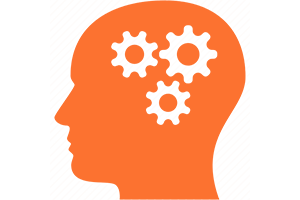
Knowledge Heros
What distinguishes us from other sites and textbooks for TOK is our commitment to catering to ALL faculty members. Our resources are designed with this in mind. The Integration Tool facilitates seamless connections between subjects and TOK concepts, while incorporating real-world events. Mini-lessons offer concise and ready-to-use classroom materials, and Knowledge Heroes empower teachers to draw inspiration from influential figures across various academic disciplines.
Prepare your pre-DP students for TOK

Thinking for Yourself

Middle Year Newsletter
We provide two pre-DP courses, namely “Thinking for Yourself” and “Worldviews,” which aim to foster critical thinking, stimulate debates, and introduce students to the concepts they will encounter in TOK. Additionally, our middle years newsletter assists students in going beyond surface-level understanding by encouraging them to delve deeper into the latest events and real-world issues.
Get trained-up for TOK

Our training programs in TOK and critical thinking are tailored to meet the needs of both specialized teachers and regular faculty members. We have collaborated with schools worldwide, assisting them in incorporating engaging, relevant, and effective TOK and critical thinking practices throughout their curriculum. Additionally, we provide free and premium webinars on TOK, along with a comprehensive collection of videos available on our YouTube channel for you to explore.
Explore the course

The Core Theme
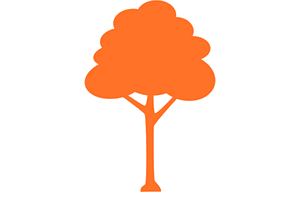
Optional Theme

Areas of Knowledge
Explore our extensive range of free course materials covering every aspect of the TOK course. Delve into the core theme, “knowledge & the knower,” as well as the optional themes like indigenous societies, language, politics, religion, and technology. Additionally, explore the various areas of knowledge such as the arts, history, human sciences, mathematics, and natural sciences. As a faculty member of our site, you’ll have exclusive access to our exploration point documents, providing in-depth insights into each component of TOK.
Download free samples

Classroom Ready TOK Lessons

TOK World Resources

Real World Resources
Gain access to a wide array of free sample materials that showcase our approach and the type of resources available to site members for delivering the TOK course. Explore our comprehensive selection of classroom-ready lessons, organized into three distinct courses. Take a look at our TOK-world resources, designed to empower students to take ownership of their TOK journey. Additionally, discover how our real-world resources establish meaningful connections between learning and current events and issues. Download these samples to get a firsthand experience of our offerings.
Testimonials
Rahul kapoor.
Studying TOK has been an enlightening journey. It has challenged my perspectives, sharpened my critical thinking skills, and expanded my understanding of knowledge. I highly recommend this course to all IB students.
United States
Emily johnson.
TOK has been an incredibly thought-provoking course for me. It has pushed me to question everything and explore different ways of knowing. This course has truly transformed the way I approach learning and understanding the world.
María Santos
Studying TOK has opened my mind to the diverse ways in which knowledge is constructed and evaluated. It has challenged my preconceived notions and deepened my appreciation for the complexity of knowledge.
Ishita Sharma
TOK has made me realise the power of questioning and the importance of having an open mind. It has encouraged me to explore different viewpoints and engage in meaningful discussions.
Request a Callback?
Learn more from, frequently asked questions.
Theory of Knowledge (TOK) is an interdisciplinary course offered as part of the International Baccalaureate (IB) Diploma Programme. It delves into the nature of knowledge, how it is acquired, and the ways in which it is justified. TOK fosters critical thinking, reflection, and exploration of different ways of knowing and areas of knowledge.
TOK offers invaluable skills for intellectual and personal growth. It enhances critical thinking, nurtures an appreciation for diverse perspectives, and encourages curiosity. By engaging with TOK, students develop abilities that are highly beneficial for higher education, such as analyzing arguments, evaluating evidence, and constructing well-reasoned viewpoints.
TOK is assessed through an externally moderated essay and an oral presentation. The TOK essay requires students to critically analyze a prescribed title or develop a self-chosen title related to TOK. The oral presentation provides an opportunity for students to explore a real-life situation from a TOK perspective and engage in a thoughtful discussion.
TOK equips students with critical thinking skills that can be applied to everyday life. It enables individuals to navigate complex issues, evaluate sources of information, and make informed decisions. The skills and perspectives cultivated in TOK are highly transferable, benefiting students in university studies, career paths, and active engagement with the world.
Absolutely! TOK emphasizes the importance of effective communication in conveying ideas and arguments. It encourages students to express themselves clearly, develop coherent arguments, and support them with evidence. Through the oral presentation component and essay writing, TOK hones students’ communication skills, enabling them to articulate their thoughts with precision and clarity.

COMMENTS
Theory of knowledge (TOK) is assessed through an exhibition and a 1,600 word essay. It asks students to reflect on the nature of knowledge, and on how we know what we claim to know. TOK is part of the International Baccalaureate® (IB) Diploma Programme (DP) core, and is mandatory for all students. Learn more about theory of knowledge.
The IB Diploma Programme stands out after the curriculum is the Theory of Knowledge (TOK). The subject, like Extended Essay, is compulsory for all students, and if executed well, it can go a long way in giving students a strong chance of gaining a lot of knowledge. TOK encourages critical thinking among students and helps … Continued
Diploma Programme Theory of knowledge guide. The International Baccalaureate Organization (known as the IB) offers four high-quality and challenging educational programmes for a worldwide community of schools, aiming to create a better, more peaceful world. This publication is one of a range of materials produced to support these programmes.
IB and critical thinking. IB claims that its programs are effective in developing students' critical thinking skills (Dickson et al., 2018; IBO, 2012). This claim has been particularly associated with two compulsory components of the Diploma Programme (age 16-18), the Theory of Knowledge course which fosters critical thinking skills in a ...
Following a review of the DP curriculum, OUCEA's analysis indicated that the IB's approach to developing critical thinking is in line with evidence-based best practice. Both individual DP courses and unique components of the DP curriculum, such as the theory of knowledge (TOK) course, offer opportunities for developing critical thinking skills.
Resear y: Teaching the theory of knowledge course in International Baccalaureate World Schools 3 The report authors note that it appears that many teachers struggle with identifying measurable objec-tives related to critical thinking. They further recom-mend that, as developing critical thinking is an essen-
applying critical-thinking skills and forming reasoned answers. Richard van de Lagemaat Theory of Knowledge for the IB Diploma SECOND EDITION. ... 978-1-107-61211-2 - Theory of Knowledge for the IB Diploma Richard van de Lagemaat Frontmatter More information. Cambridge University Press.
Theory of Knowledge for the IB Diploma | Written by experienced practitioners this resource for Theory of Knowledge for the IB Diploma offers comprehensive coverage of and support for the new subject guide. | Richard van de Lagemaat ... Quotations, questions and exercises which prompt critical thinking and encourage active engagement with the ...
TOK, as part of the IB curriculum, deals with how we know what we claim to know. It encourages critical thinking about knowledge itself among students and helps them make sense of what they encounter. The three key tenets of TOK are. Activities and discussions during a TOK class aim to help students discover and express their views on issues ...
This article reviews the literature on the effective teaching of critical thinking and looks at one example of a secondary school subject aimed at developing critical thinking skills in its graduates, namely the Theory of Knowledge (ToK) subject in the International Baccalaureate Diploma Program (DP). ToK, a core element of the DP, has no set ...
The IB Theory of Knowledge course is a unique and challenging component of the IB Diploma Programme, which also includes the Creativity, Activity, Service (CAS) program and the Extended Essay.Designed to develop students' critical thinking skills and broaden their understanding of different areas of knowledge, TOK is a mandatory requirement for students seeking the full IB Diploma.
The International Baccalaureate (IB) program is known for its rigorous and comprehensive approach to education, emphasizing the development of critical thinking, inquiry, and international-mindedness. One of the core components of the IB program is Theory of Knowledge (TOK). In this article, we'll explore the role of TOK in the IB curriculum and why it is considered a vital element in ...
Theory of knowledge (TOK) is a curious subject. It is curious in the sense that it questions and wonders, reflects and connects, in a spirit of inquiry. It is also curious in the other sense of the word—that it is a little odd, a little unlike the other subjects in the IB Diploma Programme. School leaders might be the first to ask, "What ...
Theory of knowledge (TOK) is unique to the IB. It is central to the Diploma programme and learner centered classrooms. It is part of the Core. Theory of Knowledge is a course that is fundamentally about critical thinking and inquiry into the process of knowing rather than learning a specific body of knowledge. Diploma students are asked to apply the critical thinking skills they acquire in ...
What is Theory of Knowledge? Theory of Knowledge (TOK) is an important course taken by students in the International Baccalaureate (IB) program. TOK helps students to develop critical thinking skills and encourages them to think deeply about the knowledge they acquire in subjects such as science, math, history and language.The aim of TOK is to examine the different ways of knowing, such as ...
In addition, it helps them to understand how theory of knowledge manifests in day-to-day life. The course guide and Decoding Theory of Knowledge resource helps students to critically assess the world around them, self-reflect and feel empowered by their values. This helps students develop core skills that stretch beyond success in the classroom.
Decoding Theory of Knowledge (ToK) is an accessible new resource that explores Areas of Knowledge, Ways of Knowing, Personal and Shared Knowledge, the Knowledge Framework and Knowledge Questions. Written in succinct and clear language, this engaging book decodes ToK concepts and helps students develop their critical thinking skills.
However, it also hopes to foster your interest in critical thinking about knowledge in a broad sense. With the expansion of the media through the use of modern technologies, we come across a staggering amount of knowledge claims on a daily basis. ... "Theory of Knowledge for the IB Diploma". I have used the TOK Guide as well as the discussions ...
Theory of Knowledge across the curriculum Overview "In all teaching, the teacher learns the most." [ Martin Heidegger, 1889-1976 ] The aim of the IB Theory of Knowledge course - which is centred on the question "How do you know?"- is to help students to develop their critically thinking skills.TOK works most effectively when colleagues understand how it relates to their day to day ...
'Before you start' questions at the beginning of each chapter challenge students' thinking habits and help to ignite discussion before the unit starts. 'Explore' activities lead students into the exploration of the TOK core, optional themes and areas of knowledge.
Theory of Knowledge (TOK) is an interdisciplinary course offered as part of the International Baccalaureate (IB) Diploma Programme. It delves into the nature of knowledge, how it is acquired, and the ways in which it is justified. TOK fosters critical thinking, reflection, and exploration of different ways of knowing and areas of knowledge.